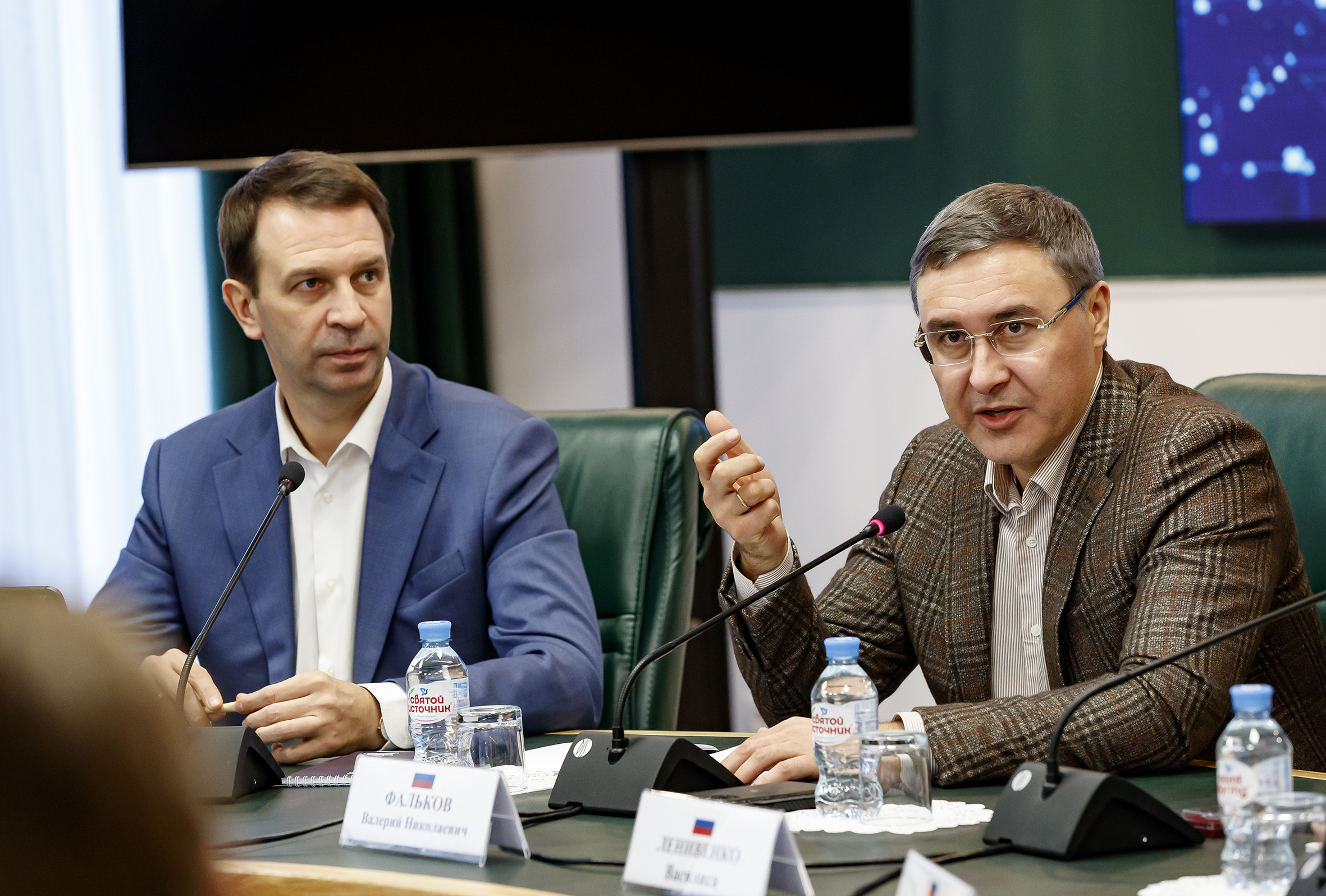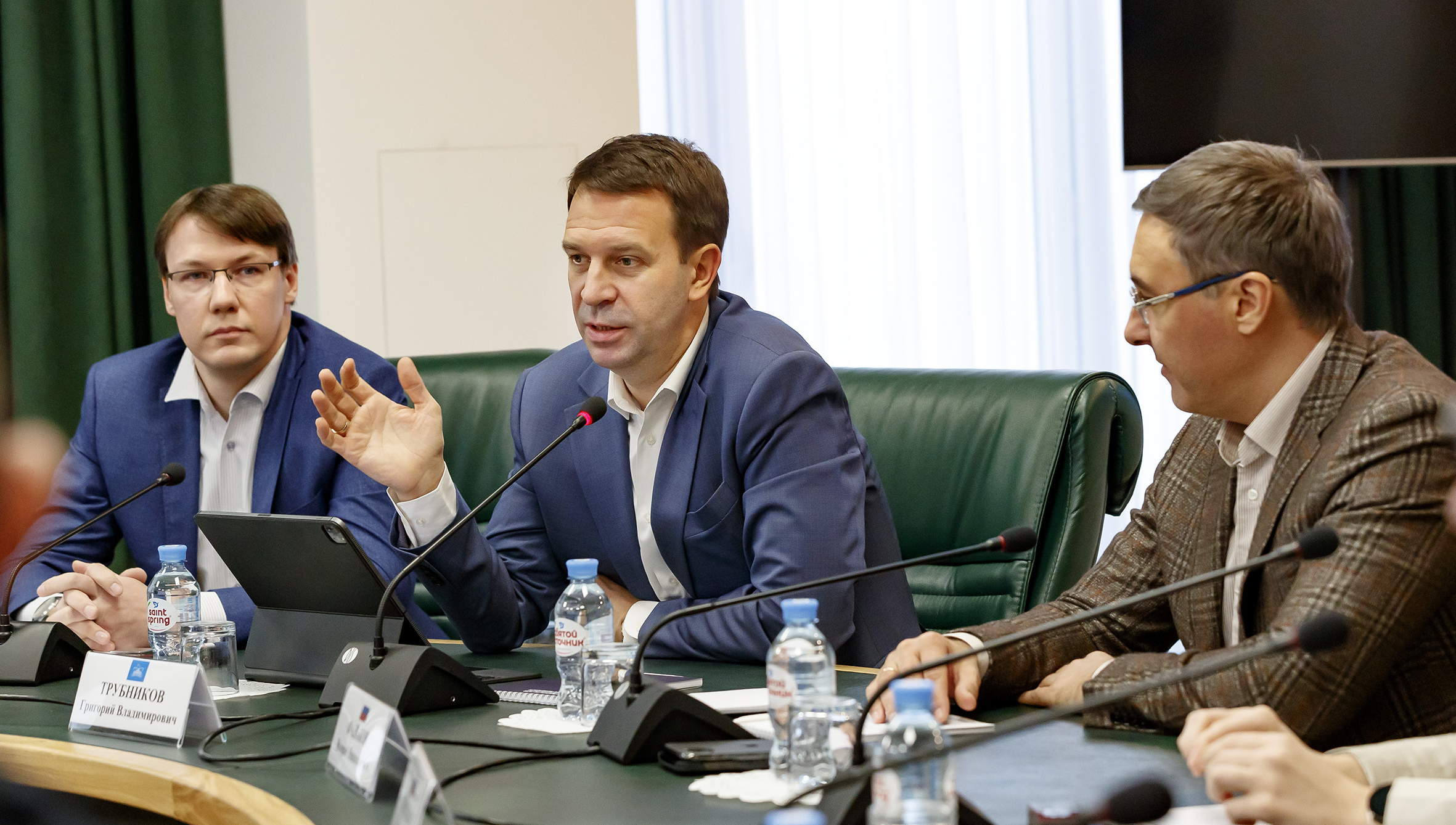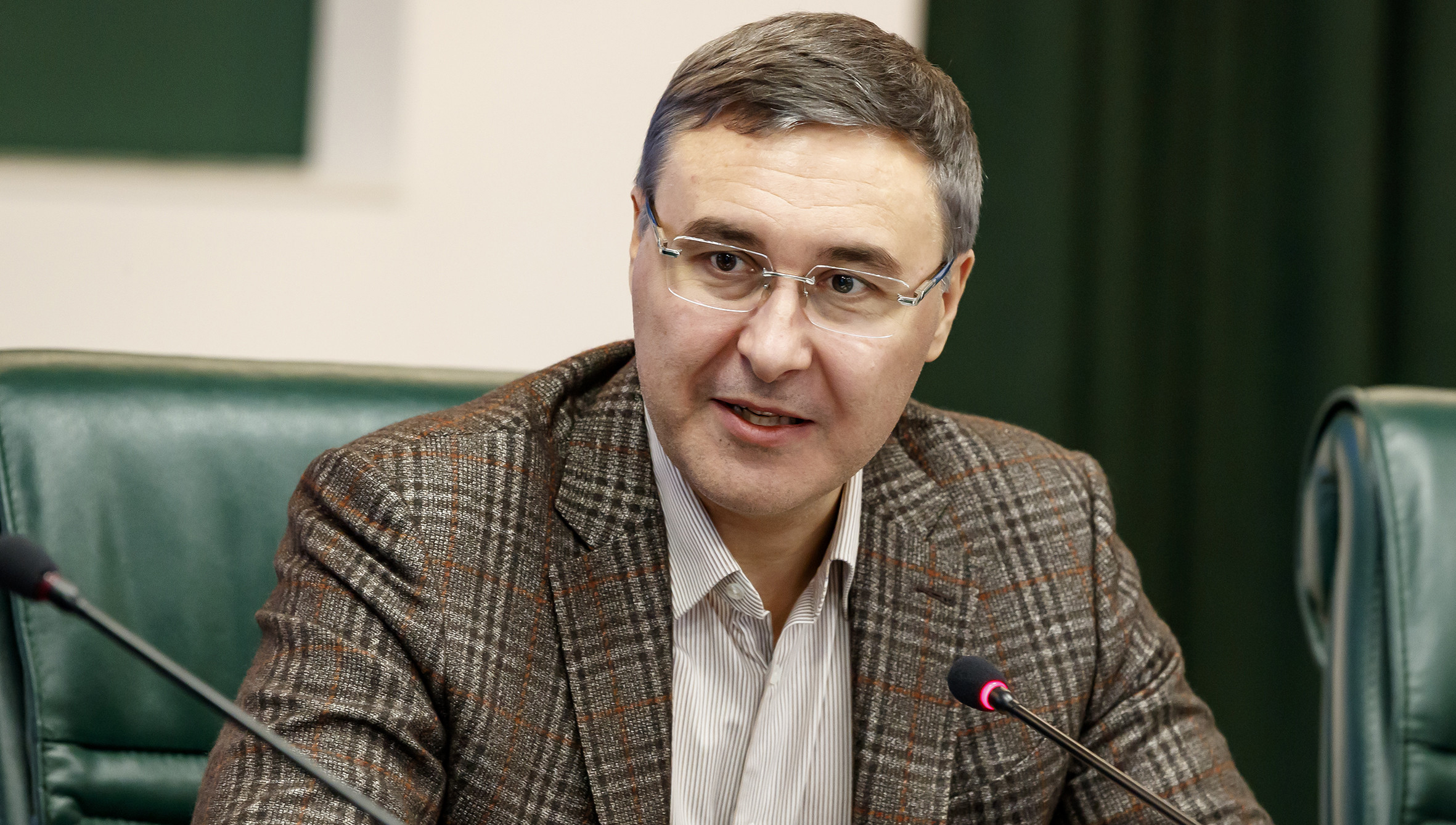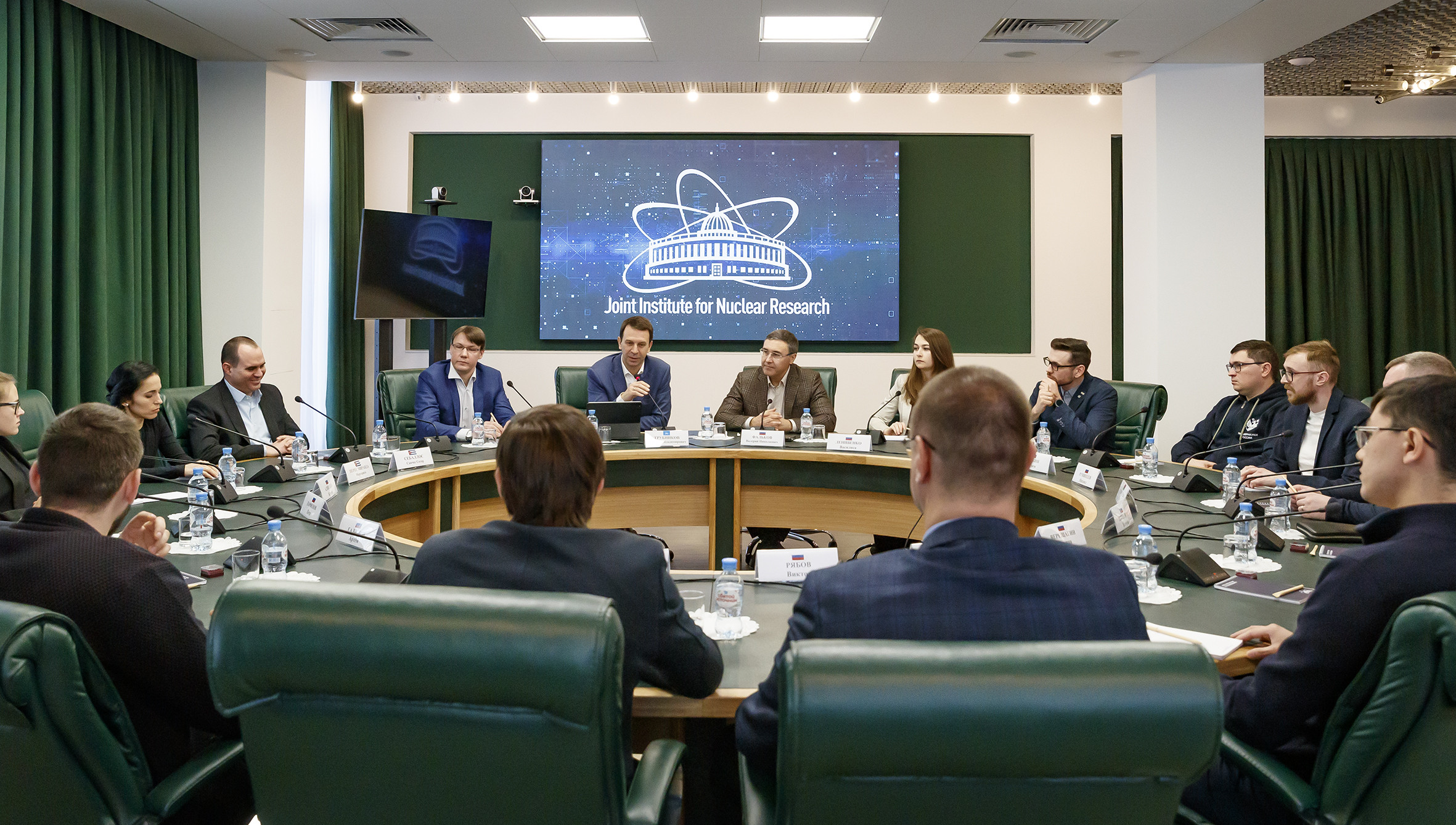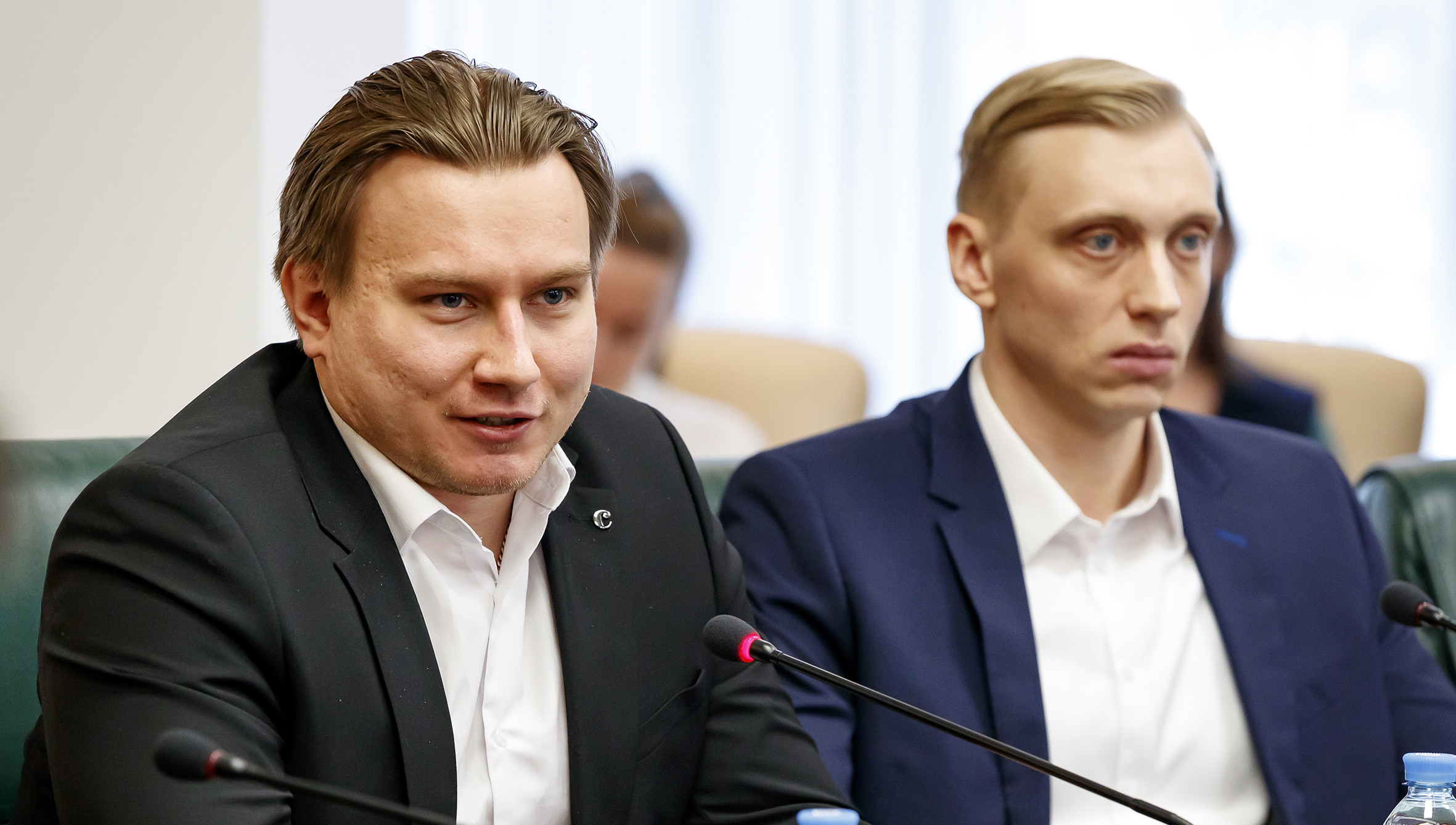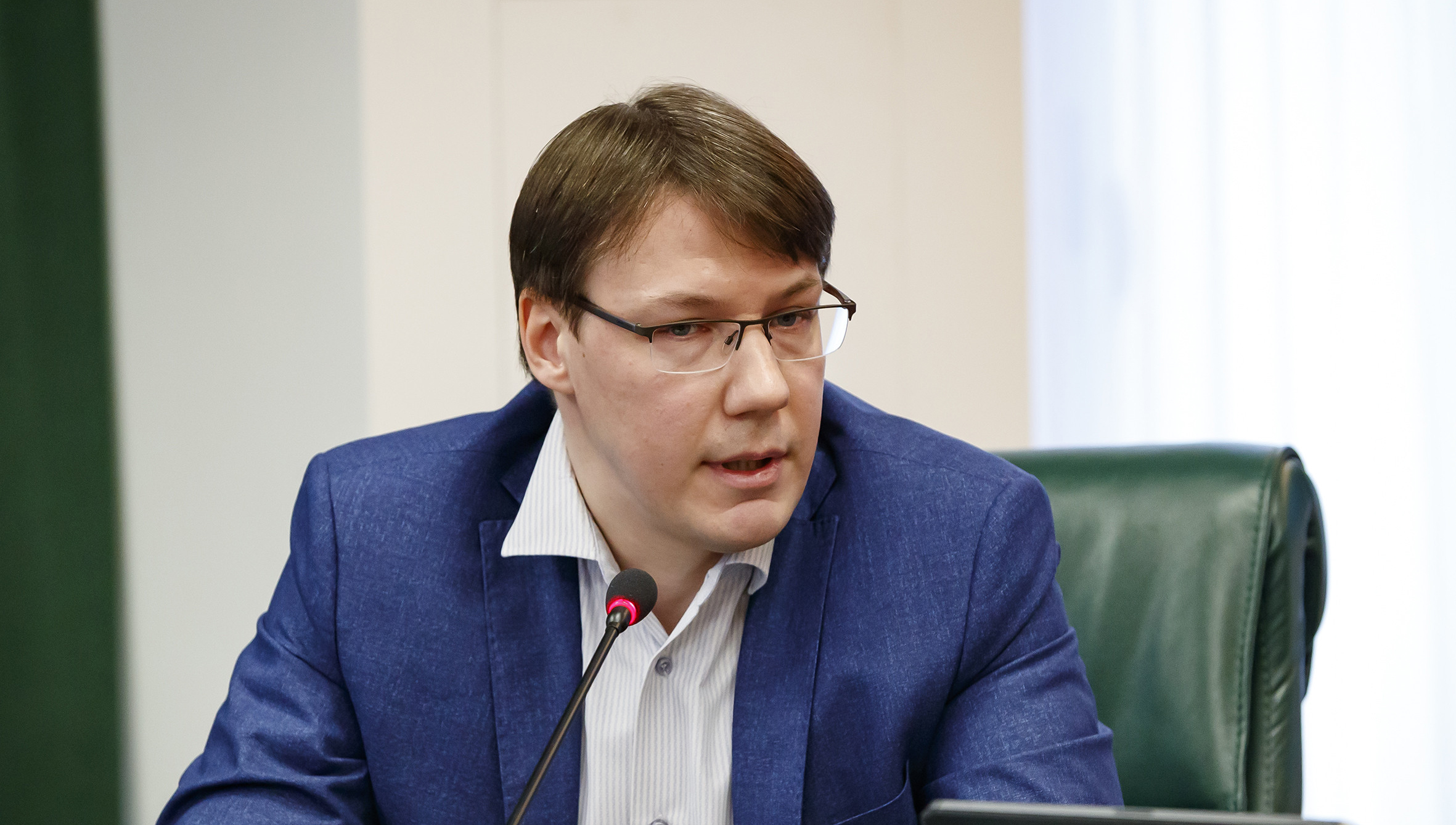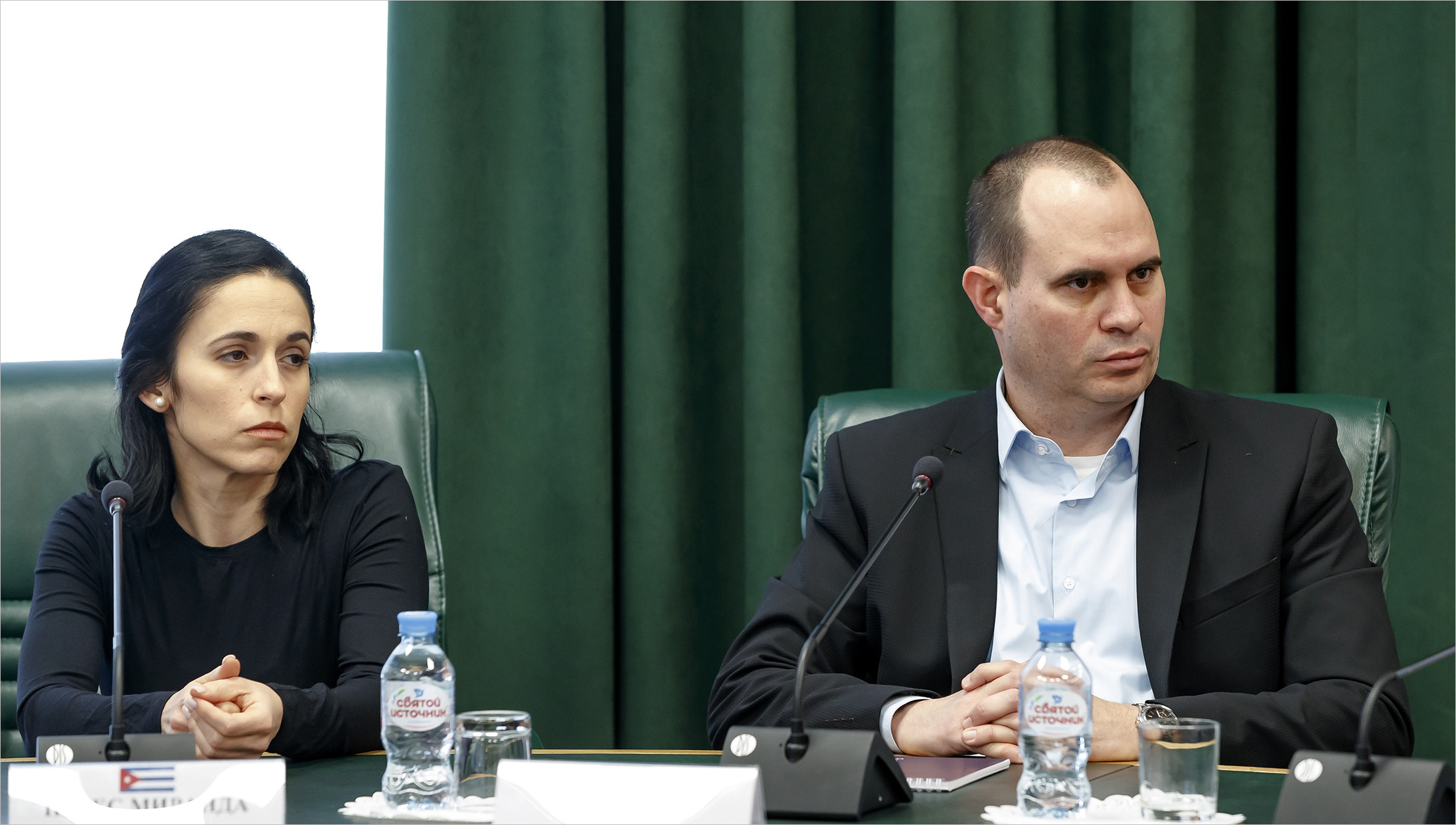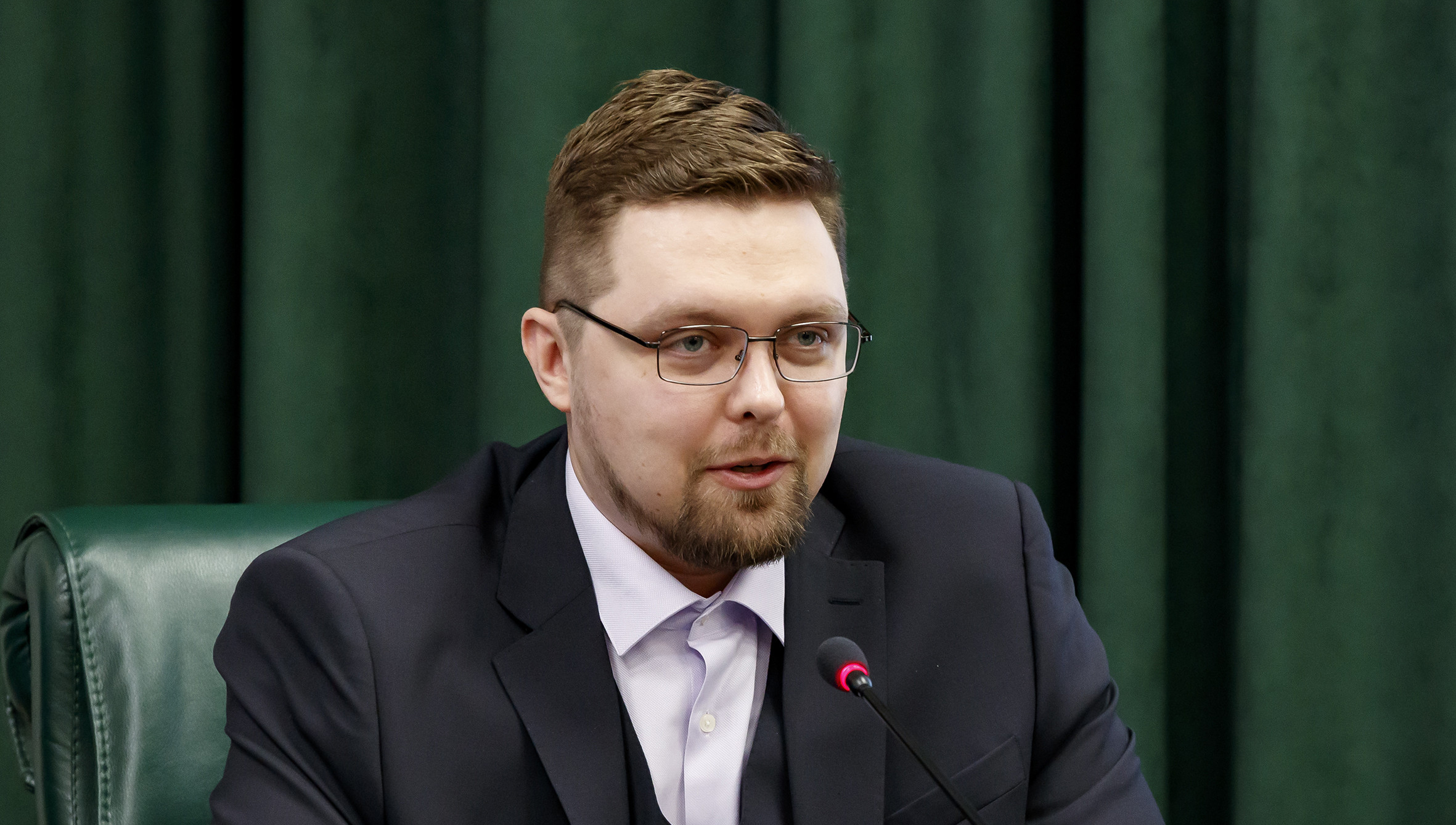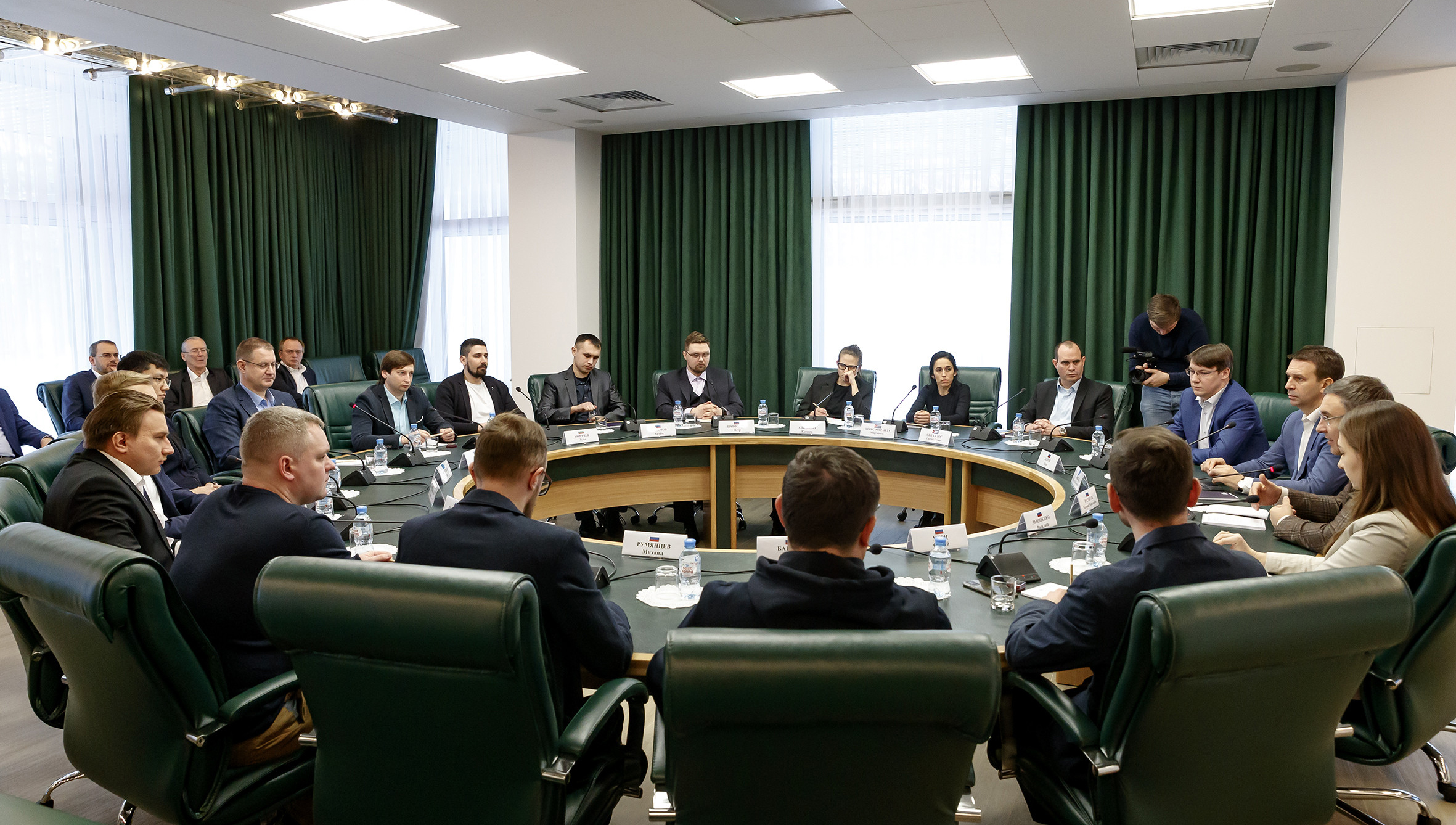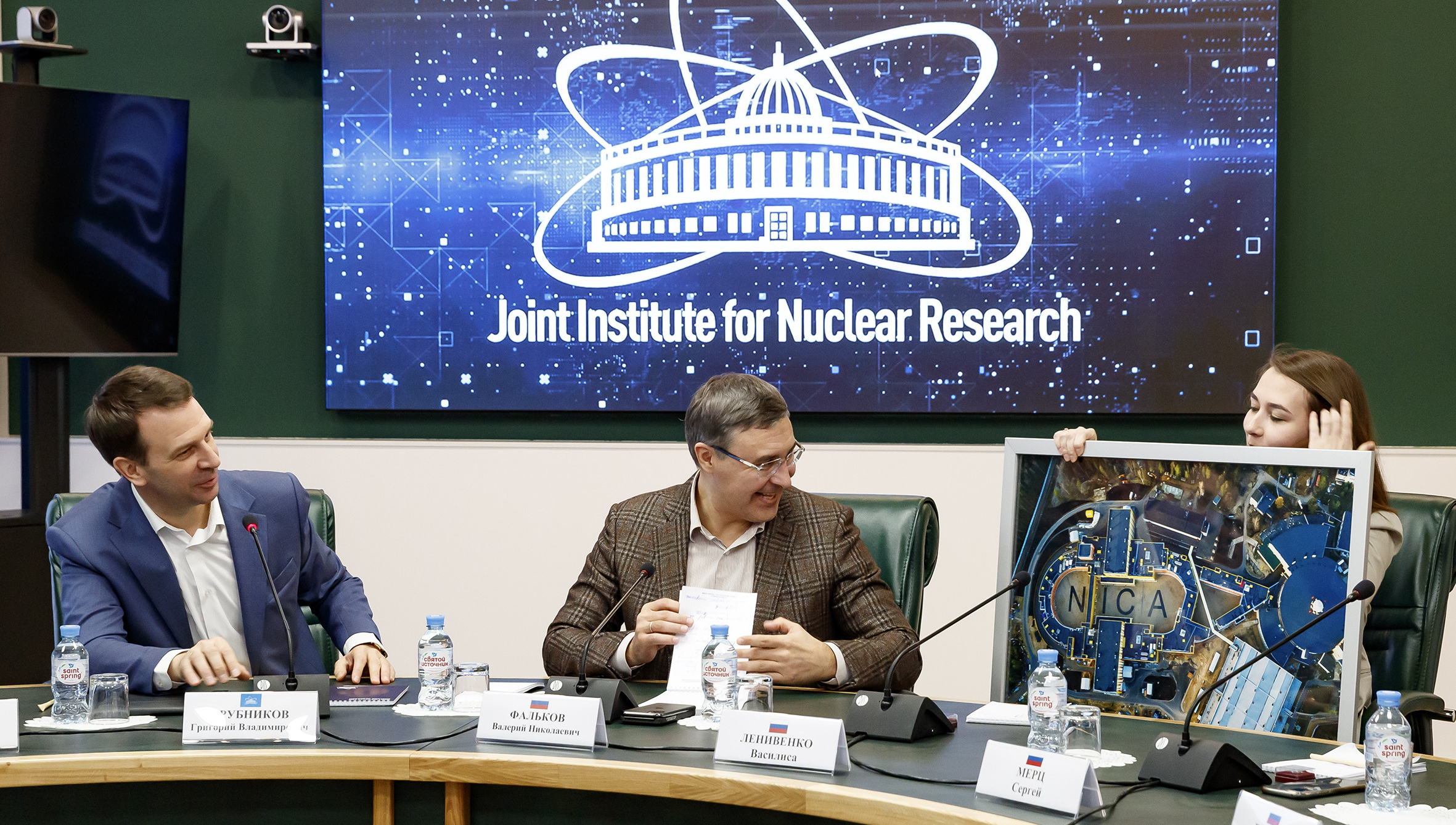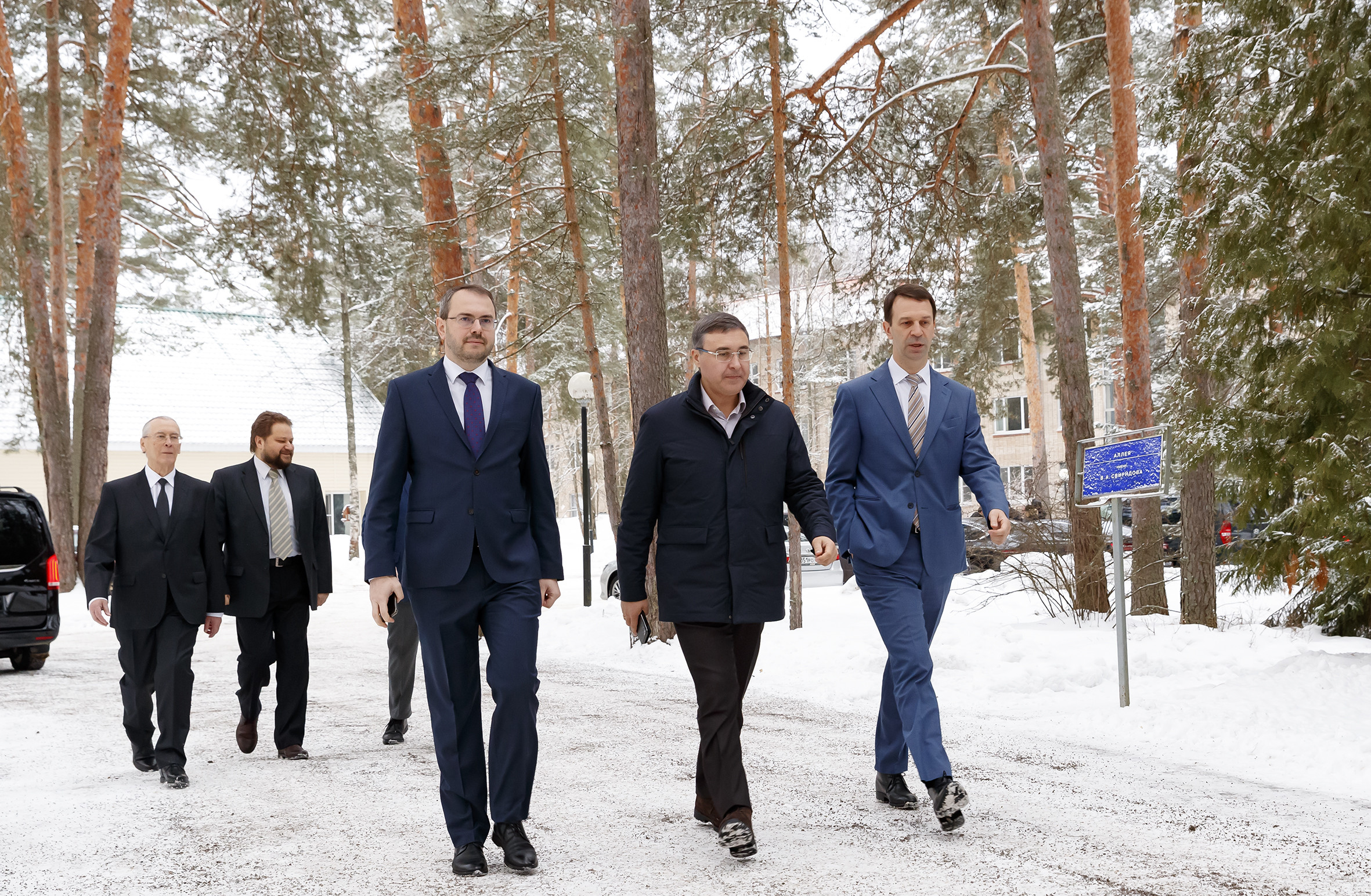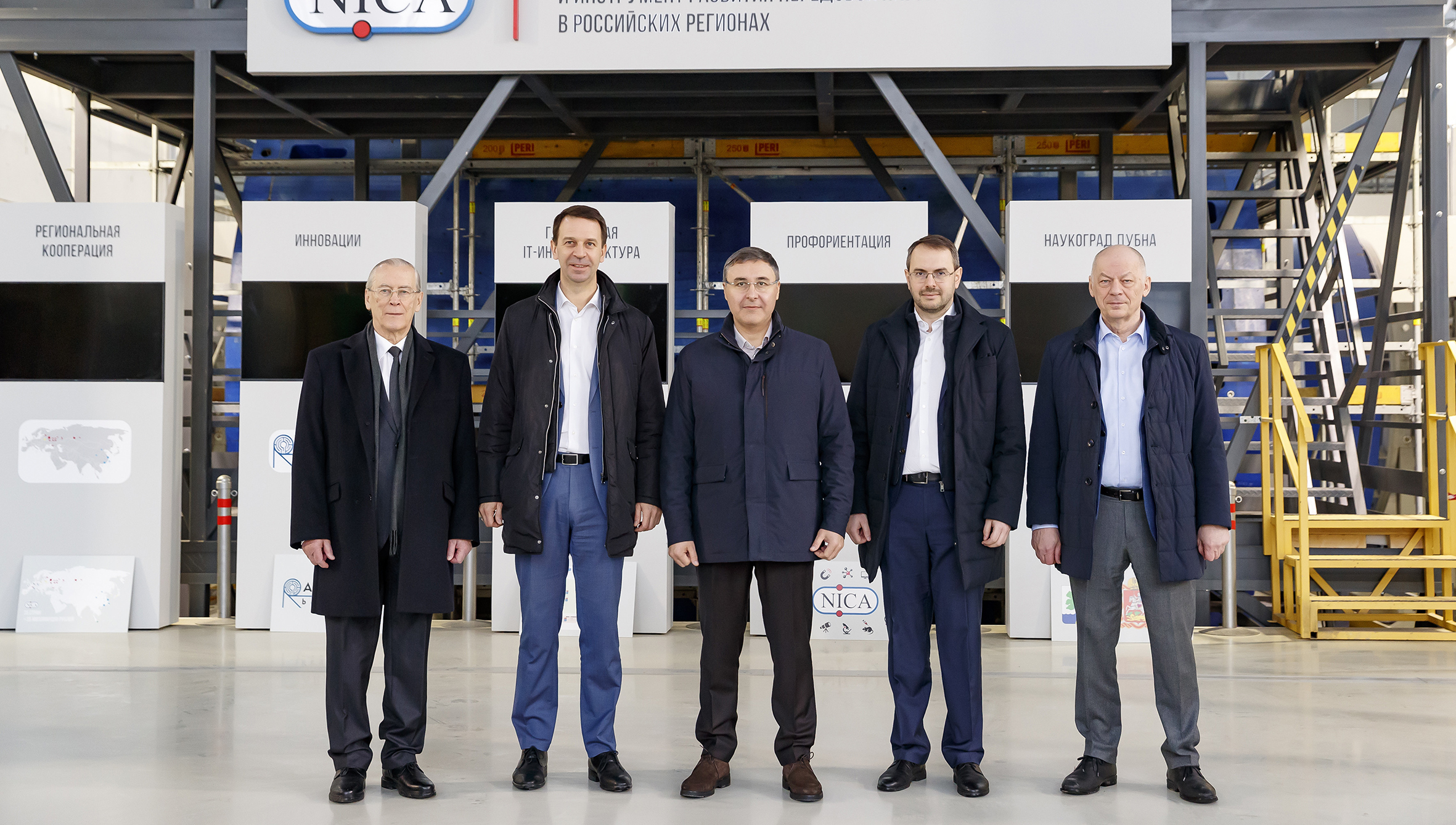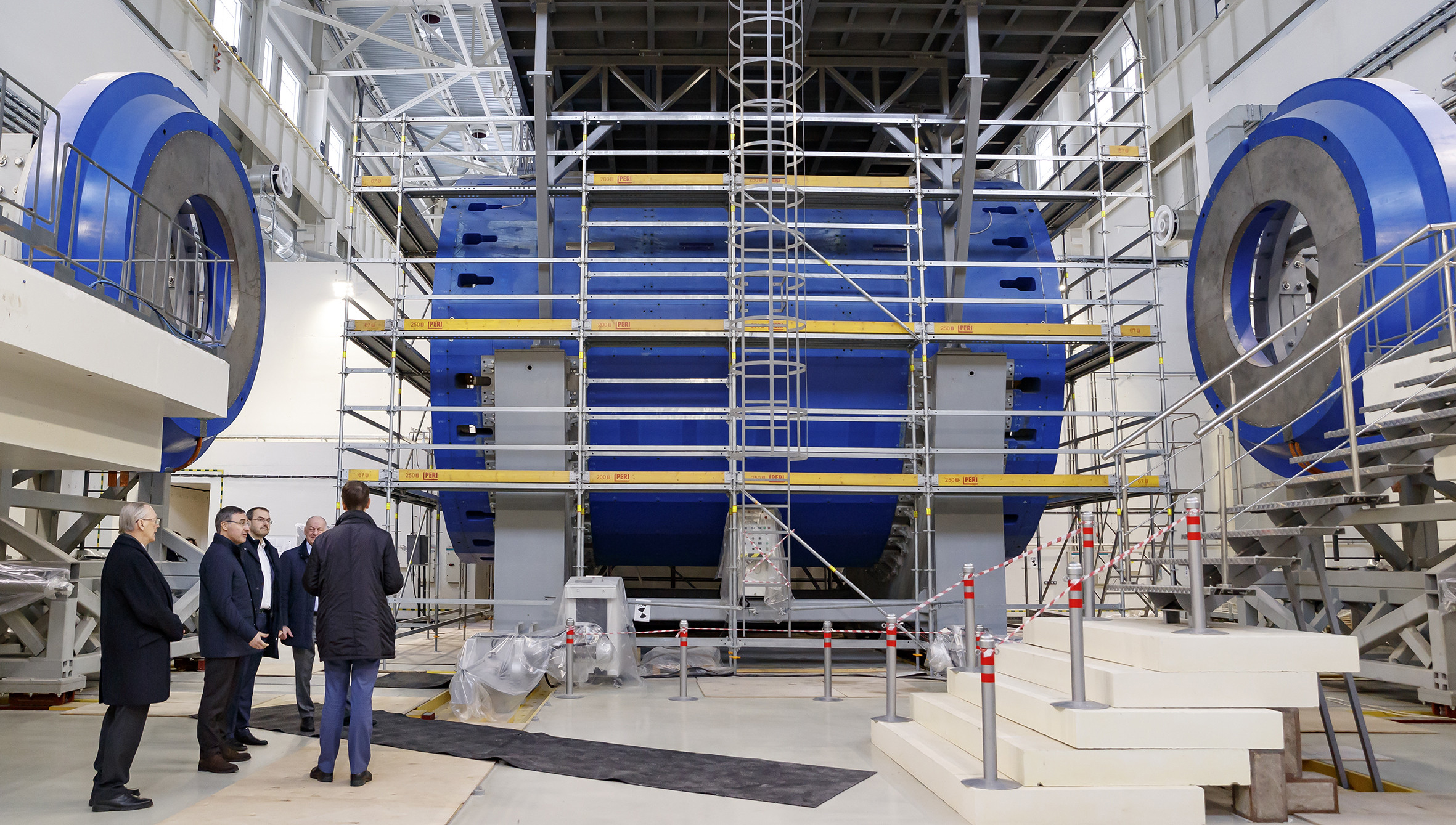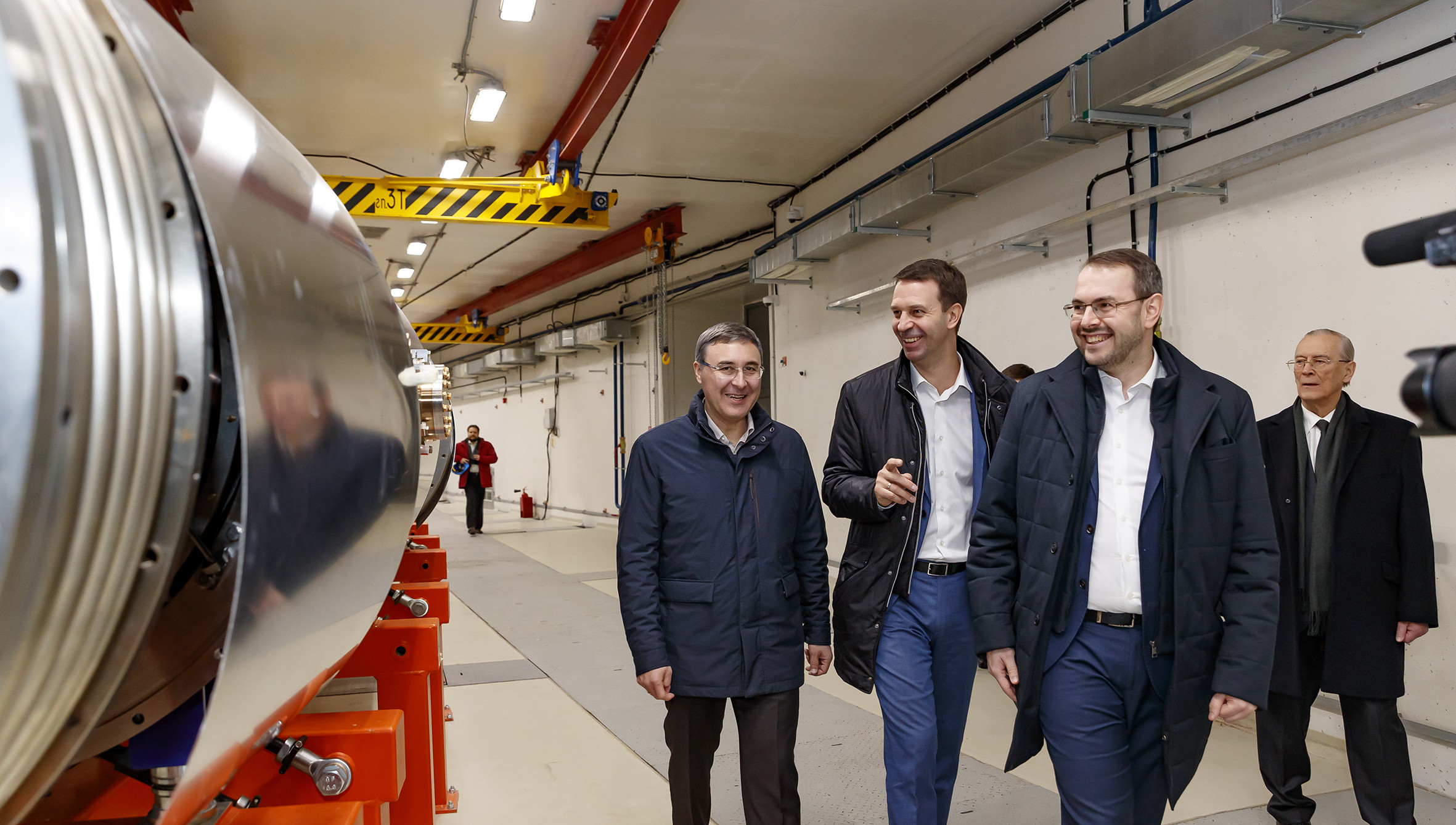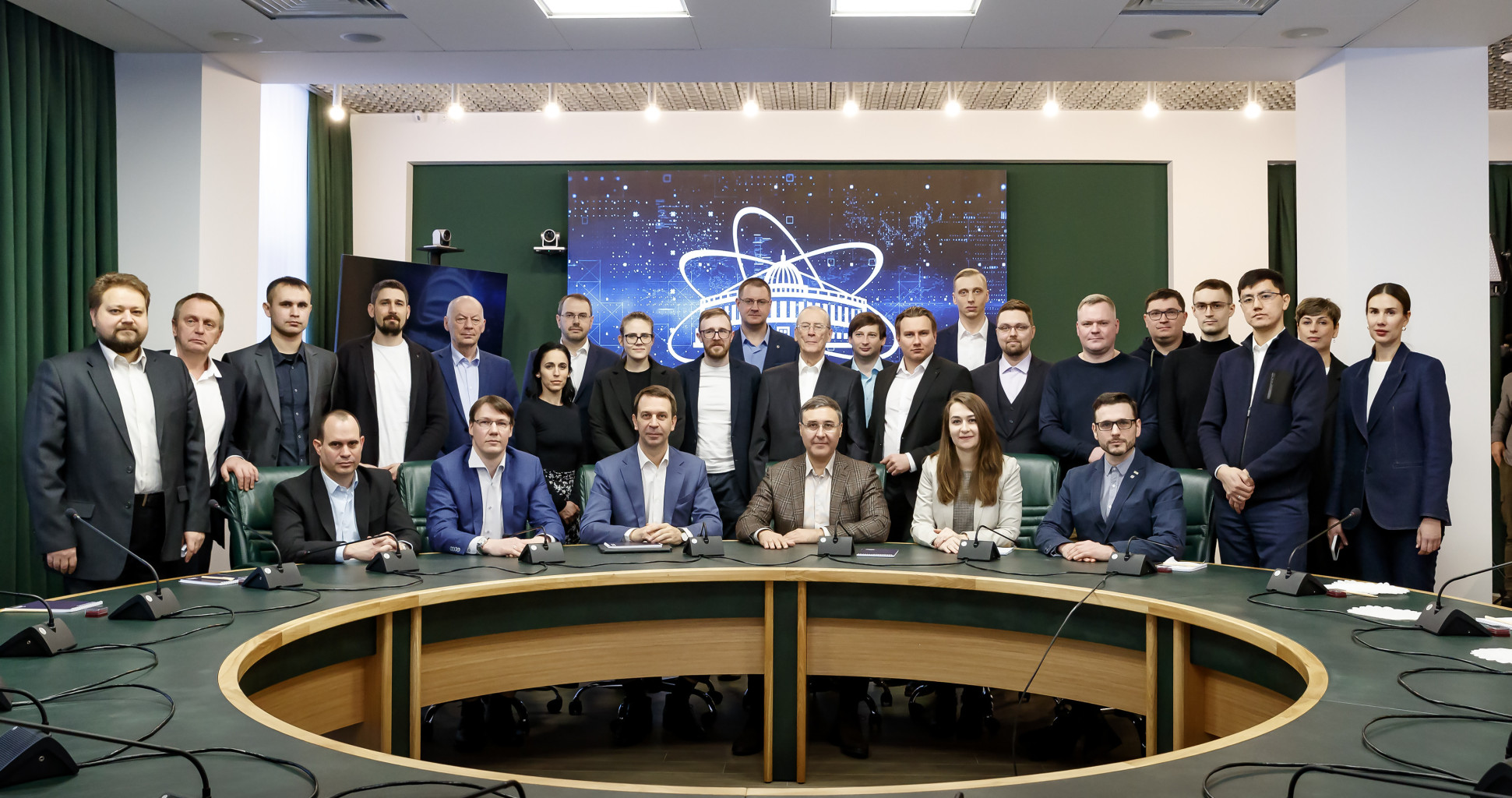Minister of Science and Higher Education of Russia met with young JINR scientists
Media, 08 February 2023
At the meeting, Valery Falkov announced that the Ministry of Science and Higher Education of Russia together with JINR will launch a support programme for students and postgraduates to attract them to work at the NICA Collider. The main topics of discussion were the achievements and results of the last run at the accelerator complex, as well as targeted support for young and experienced researchers, including from abroad, in work on the megasience class facility being prepared for launch. The Minister of Science and Higher Education of the Russian Federation also visited the site of the NICA Complex, where he got acquianted with the progress of the project.
Representatives of Russia’s leading scientific organizations, participants of the commissioning run at the NICA, which had ended on 2 February and lasted four months, joined the discussion at the round table with the Minister. The event was attended by JINR employees from Russia, Belarus, Cuba, Bulgaria, Kazakhstan who worked at the NICA run and participate in the development and implementation of the physical programme of the complex, as well as representatives of Russian scientific organizations: Petersburg Nuclear Physics Institute of National Research Centre “Kurchatov Institute” (PNPI NRC KI), National Research Nuclear University “MEPhI” (NRNU MEPhI), Moscow Institute of Physics and Technology (MIPT), Moscow State University (MSU).
JINR Director Grigory Trubnikov noted that the fourth commissioning run was a record in duration. About three hundred employees were involved in work. “It was a run of a true physical experiment. We believe that the physical data obtained during this run will help develop the main experimental programme at the NICA Collider. According to our plans, in 2024, with the support of, first of all, the Russian Federation and the project’s member states, we are going to start full-fledged international research already at the collider. The JINR’s location country plays a key role in the life of our Institute and in the life of the project,” he said. The JINR Director expressed gratitude to the Government of the Russian Federation and Valery Falkov personally for great support of the Institute’s science.
“We are reaching the finish line at the NICA, and now a comprehensive system of support measures, which will address, firstly, young researchers, will play an important role in realising the full potential of NICA,” Valery Falkov stressed. The Head of the Ministry said that in addition to the NICA Accelerator Complex, the launch of such large physical projects as the Siberian Circular Photon Source SKIF, the X-ray Free Electron Laser SILA, and the upgraded Kurchatov Synchrotron Radiation Source KISI are expected in the coming years. In this regard, the experience of organizing scientific collaborations and attracting young scientists, including from abroad, will be in high demand.
Valery Falkov gave the floor to the participants of the round table to put forward proposals for the effective organization of research teams and the establishment of related infrastructure.
A VBLHEP JINR leading researcher Sergey Merts raised the issue of targeted support for research groups of youngest scientists, that is students and postgraduates, who often do a very large amount of work on the analysis of experimental data.
Valery Falkov said that in light of the launch of NICA, the Ministry of Science and Higher Education of Russia is holding a detailed discussion about special support programme with JINR leadership.
“I think we will launch such a programme in the next month and a half. The focus will be specifically on basic research. We will aim at senior students, and, first of all, those at the master’s level, graduates, and maybe those who have just defended their theses,” the Minister said. He explained that grant support will be provided based on the results of a competitive selection, which will be carried out by experts of the Russian Academy of Sciences, the Research Centre “Kurchatov Institute”, as well as leading technical universities of the country.
During the discussion, Deputy Head of the VBLHEP Department of Methodological Research and Innovation Oleg Belov focused the attention of the audience on the fact that in the last 2.5 years the ARIADNA (Applied Research Infrastructure for Advance Development at NICA fAcility) Collaboration was created around NICA, the programme of applied research of which is built for several years ahead. Many ARIADNA member organizations are taking the initiative to create their own target laboratories in Dubna at the NICA Complex. Among other things, tasks in the fields of biomedicine, the effects of radiation on living organisms are being solved. Such target laboratories also need support.
A leading researcher of the Relativistic Nuclear Physics Laboratory of PNPI NRC KI and a Chief Researcher of the VBLHEP Scientific and Experimental Department of the Multi-Purpose Detector MPD Victor Riabov announced a proposal to involve Russian groups in research at NICA, as in the project which is relevant and long-term, as well as requiring to train new generations of researchers. Moreover, it is worth paying attention to highly qualified personnel who are dismissed from working abroad. At the same time, the effective work of the project is possible only with the systematic support of the teams. A leading researcher at VBLHEP JINR Cesar Ceballos Sanchez highlighted the need to develop international scientific cooperation, where China is one of the promising partners. An employee of the MIPT Accelerator Physics Laboratory Evgeny Tsyplakov raised the issue of commercialisation of scientific developments.
At the meeting, Valery Falkov said that the eighth stage of the megagrant competition was held in 2022. The amount of remuneration per leading scientist and research group was increased from thirty million to one hundred million per year. The grant terms have also increased from three to five years with the possibility of extension for three years. A separate track has been introduced for young scientists from abroad, who can also be attracted to work at NICA.
The Minister invited the participants of the NICA Complex to join a programme of youth laboratories that is being developed in Russia. Currently, 740 such laboratories have been established in the country, 900 in total are planned. If the laboratory being created passes a competitive selection, it receives long-term support: at least ten pay rates are provided with good funding for several years.
Valery Falkov noted that in the future his department may have programmes for applied tasks in subject areas, in which the Ministry of Science and Higher Education and state corporations will participate.
At the end of the meeting, the Head of the Ministry congratulated the scientists of the Joint Institute on the Day of Russian Science. “Science is the desire to be the first, to take a step into the unknown on the frontier of knowledge, to discover what has not been discovered yet, and this, of course, feels special. On the eve of the Russian Science Day, I want to wish you simple things: being passionate about your favourite occupation, health, and true happiness. I want to sincerely thank you, congratulate you on the upcoming holiday, and once again wish you all the best!”, Valery Falkov concluded.
